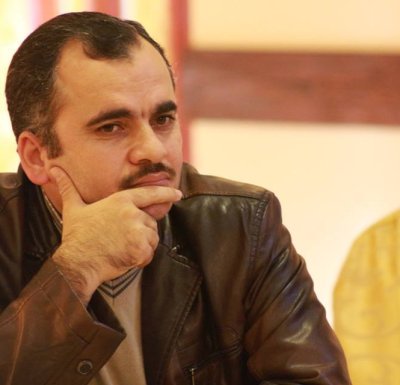The 30th anniversary of the Oslo Accords agreements signed between Israel and the Palestine Liberation Organization in September 1993 comes at a time when Israelis are still preoccupied with details of the deals and what happened behind the scenes as well as the motives that led their then Prime Minister Yitzhak Rabin to sign on the dotted line.
Rabin had actually pledged to the Israelis during the 1992 General Election to reach a political agreement with the Palestinians within nine months. He had bet on an agreement with Syria despite its failure and on Washington’s negotiating channel with the Palestinians which also failed leaving him with only one option: Oslo.
Moreover Rabin looked at life through security eyes and had done since his involvement in the Palmach militia during the British Mandate period before the establishment of the occupation state. It was also the result of the years he spent as minister of security in the eighties and nineties with his real transformation coming in the First Gulf War in 1991 when long-range Iraqi missiles confirmed the extent of Israeli dependence on the US to provide anti-missile cover.
Rabin believed that the Oslo Accords would help maintain American support even when dealing with Iran which posed the main strategic threat. This required concessions on the Palestinian issue. What’s more Tel Aviv’s exposure to missile fire during the Gulf War convinced him that the Israelis no longer had the mental strength to endure the ongoing confrontation with the Palestinians.
Prime Minister Rabin never appreciated the importance of the Gaza Strip. Many Israelis saw it as a place that the occupation state would be better off without and since the first phase of Oslo’s Declaration of Principles dealt mainly with Gaza it was generally appropriate for his views. He also saw in the agreement something which ensured that complete control of the West Bank was not neglected and he suggested a separation between what was written on paper and how it would be implemented. &ldquoRabin is old&rdquo wrote journalist Amnon Abramovich &ldquoand has enough political experience to know that the agreement is irreversible.&rdquo
At the time of signing the Oslo Accords the situation became even more tense as the religious Shas party was about to withdraw from the coalition government after its leader Aryeh Deri was indicted. Without a major political achievement the Rabin government could have fallen as early as November 1993. Things did not look good for the Palestinians either as there was a sense that time was running out and that Yasser Arafat and the PLO could soon lose their authority in the Palestinian territories in favor of the growing influence of Hamas.
The newly-published official government protocols and Rabin’s public actions demonstrated that he continued to implement the Oslo Accords including handing over security responsibility to Arafat and the Palestinian Authority security services so that they could fight Hamas. It was clear that the political pressure on Rabin and the lack of confidence in the Israelis&rsquo response to the escalation of the First Intifada (1987-1993) had pushed him toward Oslo.
These protocols also reveal that the Oslo negotiations were managed through two channels at the same time: the first was led by the prime minister personally in Washington and the second was headed by Foreign Minister Shimon Peres in Oslo. From the Palestinian side there was only one negotiator Yasser Arafat who sought to harness any political channel that would bring him greater returns. Rabin understood that Arafat was the main person in the agreement and he proved beyond doubt that he had the power to wield a veto.
Today the Israeli right wing is using the Oslo anniversary to prove their point that Rabin and Peres deviated from their path thus leading to the outbreak of the Second (Al-Aqsa) Intifada in 2000 and a change in the situation in the occupied Palestinian territories to the disadvantage of the occupation. This is what the army commanders in particular the then Chief of Staff (and later Prime Minister) Ehud Barak had expected. He hated Oslo did not want to implement it and warned in official records of possible security risks as a result of it. Rabin agreed with him on some points.
When signing the agreement the Israelis did not hide the fact that they were gambling. They had not taken into consideration that there would be armed attacks later on. Today after 30 years both sides have different leaderships in Benjamin Netanyahu and Mahmoud Abbas. They may bring things back to a distorted version of the Oslo Accords even though the Israeli approach when signing the agreement was aimed at solving the security problems resulting from the major resistance attacks by Hamas.
So thirty years down the line from Oslo opinions are still divided. Some see it as a serious solution to the conflict with the Palestinians while others see it as the font of all evil and believe it to be the main cause of all problems for the past three decades. While Oslo is cast as a wedge in Israeli politics and a cause of the ongoing confrontation with the Palestinians it is conveniently overlooked that illegal Jewish settlements are still being built and expanded Palestinian land is still being stolen and Palestinians are still being evicted from their homes.
As more testimonies come out about what happened behind the scenes with Oslo criticism has been directed at the politicians for excluding the intelligence services from the process Rabin was wrong it is said for not including them in the negotiations. Oslo also compromised the army’s freedom of movement in the occupied Palestinian territories after soldiers had been operating freely there since 1967. They relied on human intelligence and agents and it was feared that any harm to them would affect their control of the occupied territories.
The real fear of the security services was that the army would completely lose its intelligence advantages post-Oslo. New methods had to be adopted against the backdrop of the Hamas resistance attacks during the 1990s. However intelligence cooperation between the Israeli and Palestinian security services which took place after the Oslo Accords helped Israel in this regard.
– Dr. Adnan Abu Amer heads the Political Science and Media Department of Umma University Open Education in Gaza. His article appeared in MEMO.











